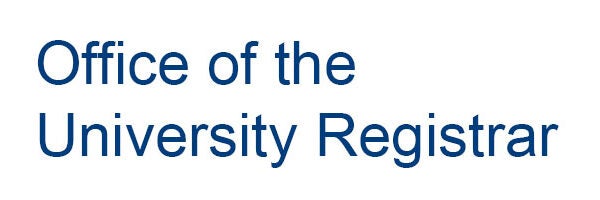Yong Loo Lin School of Medicine
Undergraduate Education
Undergraduate Education: Degrees Offered
The Yong Loo Lin School of Medicine offers two full-time undergraduate programmes, leading to:
- Bachelor of Medicine and Bachelor of Surgery (MBBS)
- Bachelor of Science (Nursing) / Bachelor of Science (Nursing)(Honours)
Overview of Bachelor of Medicine and Bachelor of Surgery (MBBS)
The undergraduate medical programme is a five-year course leading to the degrees of Bachelor of Medicine and Bachelor of Surgery (MBBS). The curriculum is taught over five years, or phases:
| Phase I (Year 1) |
|
Pillars:
|
ENRICH Mentorship and IPE Opportunities |
Pathway (Selective):
|
| Phase II (Year 2) |
|
|||
| Phase III (Year 3) |
Core Clinical Practice | Spiralling of Pillars related competencies into clinical years | ||
| Phase IV (Year 4) |
Acute and Specialty Clinical Practice | |||
| Phase V (Year 5) |
|
Note: The curriculum outline above is only applicable to students admitted from AY2023/2024 and subsequent academic years, or students graduating in 2028 and onwards. The new enhanced curriculum map is not applicable to students admitted before AY2023/2024 or students who graduated or will graduate in 2027 and earlier.
Students should note that there is a distinction between degree requirements for students who graduated in 2027 and earlier, vis-a-vis degree requirements for students graduating in 2028 and onwards. Where applicable, the distinctions in the requirements are set out in this Bulletin and students should take note of the requirements that are applicable to them. The Yong Loo Lin School of Medicine will endeavour to give students notice of revisions to any requirements as soon as reasonably practicable, and revised requirements shall apply to students.
The curriculum is undergoing enhancements to incorporate the NUS five Pillars of Common Curricula (Pillars) for Healthcare Professional by AY2023/2024 with selected components implemented as early as AY2022/2023.
Some of the key highlights of the undergraduate medical curriculum are:
- An integrated curriculum where students learn basic sciences holistically with stronger correlations to clinical conditions, and understand healthcare delivery across time, space, discipline and acuity;
- Significant curriculum time to collaborative case-based learning and small group teaching;
- Innovative pedagogy and self-directed learning enabled through extensive use of technology;
- Student Internship Programme to provide students with real-life practical opportunities for clinical care;
- Early meaningful clinical exposure to ready the learners for clinical practice through understanding the Patient’s Journey, the Healthcare Practice, and the Clinical Skills Foundation Programme;
- Strong emphasis on developing caring and ethical medical professionals, who are reflective practitioners grounded in values, resilience, and are effective communicators in a dynamic, inter-professional healthcare setting;
- Pathway programme to expand the educational options available to our students, broaden their experience and equip them with skills relevant to clinical practice and healthcare in the 21st century.
Overview of Bachelor of Science (Nursing)
The BSc (Nursing) curriculum reflects current healthcare trends and the role of registered nurses in facing the challenges of nursing practice in the 21st century. Students will learn basic skills in a simulated clinical laboratory on campus and be exposed to practice in a range of clinical settings as they progress. The programme is modular in nature and includes the following subjects:
- Nursing Sciences
- Anatomy and Physiology
- Pathophysiology
- Pharmacology
- Immunology
- Microbiology
- Psychology
- Sociology
- Critical Thinking and Analysis
- Healthcare Law and Ethics
- Healthcare Management and Education
- Research and Statistics
- Evidence-based Practice
- Clinical Skills
- Clinical attachments at local hospitals/institutions, etc.
Fourth-year Honours students will be expected to complete a research project and courses such as Applied Research Methods and Evidence-based Health Care Practice.
Financial Assistance
The School has several bursaries available to full-time undergraduate MBBS students who are in need of financial assistance to help them through their course of study. For more information regarding financial assistance and the application procedure, please visit: https://medicine.nus.edu.sg/prospective-students/tuition-fees/
There are several bursaries available to full-time undergraduate BSc (Nursing) students who are in need of financial assistance to help them through their course of study. For more information regarding these bursaries, the conditions of the award and the application, please visit: https://medicine.nus.edu.sg/nursing/education-admissions/undergraduate/bachelor-of-science-nursing-bachelor-of-science-nursing-honours/scholarships-bursaries-financial-aids/
For university-wide financial assistance, please visit http://www.nus.edu.sg/oam/financial-aid
There are several bursaries available to full-time undergraduate BSc (Nursing) students who are in need of financial assistance to help them through their course of study. For more information regarding these bursaries, the conditions of award and application, please visit:
For university-wide financial assistance, please visit http://www.nus.edu.sg/oam/financial-aid
Awards
For faculty awards, please visit https://medicine.nus.edu.sg/nursing/education/bachelor-of-science-nursing-bachelor-of-science-nursing-honours/student-achievements/

